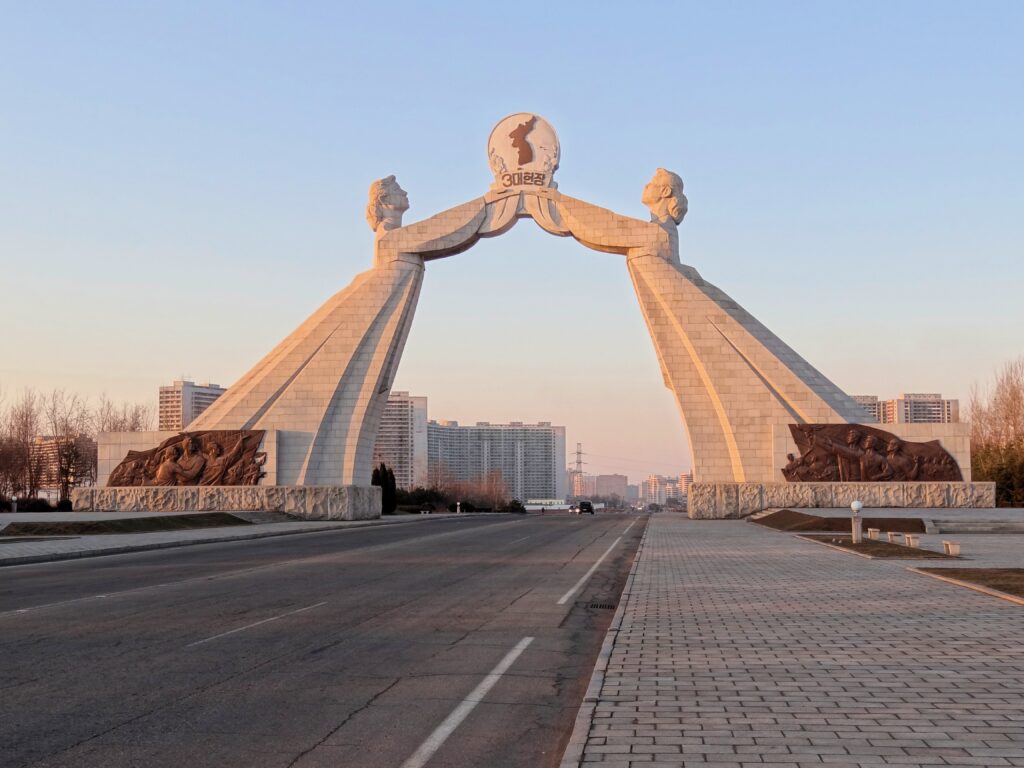The Peninsula
What does North Korea’s Rejection of Unification Mean for the Armistice?

For seventy years, one of the few things that North Korea, South Korea, and the United States agreed upon was the goal of reunifying the Korean Peninsula. No more, at least for now. During a January 2024 speech, Kim Jung-un announced, “The reunification of Korea can never be achieved with the Republic of Korea.” He called for a revision of the North Korean constitution to remove references to unification and remarkably declared that there is no longer a single Korean people. What does it mean for the 1953 Korean War Armistice if its parties no longer adhere to its aim of achieving “the peaceful settlement of the Korean question”?
The first question to answer is whether the Armistice is still in effect after all these years. As recently as November 2023, the seventeen nations that make up the United Nations Command (UNC), whose responsibility it is to enforce the Armistice, declared that it is. For its part, North Korea occasionally has stated that the Armistice is no longer valid (in 1994, 1996, 2003, 2006, 2009, and 2013) but has at the same time accused South Korea of violating the Armistice, implying ambivalence regarding its status. The Armistice itself states that it “shall remain in effect until expressly superseded either by mutually acceptable amendments and additions or by provision in an appropriate agreement for a peaceful settlement at a political level between the two sides.” There is no provision for a party unilaterally to withdraw from it.
To quote the Armistice further, the warring parties committed themselves to “a complete cessation of hostilities and of all acts of armed forces in Korea until a final peaceful settlement is achieved.” Article IV calls for “a political conference at the highest level…to settle the Korean question.” But what constitutes a final peaceful settlement, and what exactly is the Korean question?
During the post-Korean War 1954 Geneva Conference, all parties assumed that the division of the peninsula was artificial and temporary. The basis of the negotiation was how to put Korea back together and the conference made significant progress in achieving these goals. The principal sticking point, however, was over international supervision of the agreement under which Korea would be reunified: would it be carried out by the United Nations, as the allies insisted, or by a commission of neutral nations, which was the position of Russia, China, and North Korea.
From our viewpoint in 2024, it seems hard to imagine, but in the mid-1950s, no one foresaw a long-term division of the peninsula. Everyone’s experience until 1945 had been that of a single Korea. Both the South and North Korean constitutions enshrined unification as a national goal. Thus, the Korean question was understood principally to mean how to achieve unification.
Fast-forwarding to 2024, North Korea could have put South Korea, the United States, and the UNC in an awkward position if Kim Jung-un had simply said that as far as North Korea was concerned, a peaceful settlement had been reached through its decision that henceforth two states would coexist on the Korean Peninsula, albeit still armed. The Armistice in this sense could have been considered fulfilled. Could South Korea continue to assert de jure authority over North Korean territory after North Korea had abandoned unification in favor of peaceful coexistence? How could South Korea unilaterally continue a policy of unification without appearing to be an aggressor?
If it had happened this way, the US-ROK Mutual Defense Treaty could have continued to provide a basis for US forces to remain on the peninsula—the treaty is not explicitly directed at North Korea—but much of the alliance’s raison d’être is to enforce the Armistice, as is the entirety of the UNC’s.
But, that is not what Kim Jong-un announced in January 2024. After rejecting unification, he went on to brand South Korea as the “number one hostile state,” and to assert, “The two most hostile states, which are at war, are now in acute confrontation on the Korean Peninsula.”
Rather than rendering the Armistice obsolete, Kim Jong-un has breathed new life into it. His assertion that the two Koreas are at war is a virtual endorsement that a state of armistice still exists, and his belligerency made crystal clear, if anyone doubted it, that the “Korean question” remains unresolved. The enforcement of the Armistice remains important, pending a genuine political settlement.
Mark Tokola is the Vice President of the Korea Economic Institute of America. The views expressed here are his own.
Photo from Wikimedia Commons.
